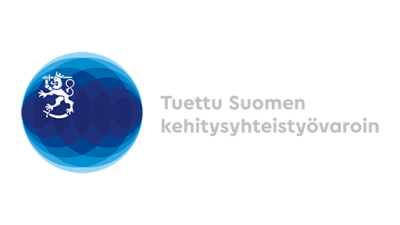Projekti
ODF2030 - Sustainable Sanitation for Ho Municipality, Ghana
Rahoitusohjelma
ODF2030 -Sustainable sanitation for Ho Municipality, Ghana -project has ended in 2022 and the final annual report has been published. However after the ended project actions continue with a new project ODF2030 - Sustainable sanition for Volta Region, Ghana until December 2026. Aims of the continuation project are principally same as in the concluded project. The project continues to support the loca´l government and institutions of the municipality of Ho, but also extends the activities to volta region.
ODF2030 –Sustainable sanitation for Ho Municipality, Ghana – project aims to empower and capacitate public authorities and institutions and to mobilise the citizens for achievement of total sanitation in Ho Municipality by 2030. The aim is in line with the development strategies of Ho Municipal Assembly, National strategies in Ghana and the UN Sustainable Development Goals. Current level of access to sanitation in Ho Municipality is less than 20 per cent and open defecation is prevalent in both urban and rural areas.
So far, the progress in sanitation has been slow in Ho Municipality despite ongoing sanitation promotion programs lead by Environmental Health Unit of Ho Municipal Assembly. Currently promoted water closets and pit latrines pose several challenges including, but not limited to, lack of wastewater treatment and removal services, cost of use and maintenance, offensive smell, limited water availability as well as difficulty of construction due to high ground water level or hard and stony ground. With the ECOSAN solutions, these problems can be effectively solved while also enabling the production of organic fertilisers. Fertilisers are in high-demand in Ho where agriculture is the dominant economic activity. However, the availability of imported, commercial fertilisers is limited and the rural communities also lack funds to access them.
ODF2030 teams up Ministry of Food and Agriculture, Ho Technical University, Community Water and Sanitation Agency of Volta, School of Hygiene and Ho Municipal Assembly to a joint mission for reaching total sanitation in Ho through promotion of locally sustainable, circular economy based ECOSAN sanitation solutions. The ECOSAN solutions not only improve hygiene and health for the people in township and communities, but also create opportunities for improved food security and poverty reduction. The local partners in Ho are familiar with the ECOSAN solutions and related production of organic fertilisers following the local government cooperation with the City of Lahti that has involved several pilots for schools and rural households. After the testing and establishment of local suitability as well as gaining the commitment of the authorities and key institutions, the time has come to scale up and start widely engaging the private sector and public for funding and uptake of ECOSAN solutions.
The core idea of ODF2030 is to empower and capacitate public authorities and institutions in Ho Municipality to effectively implement sanitation development and promotion campaigns in urban and rural areas. The capacity building is designed as a continuous process that involves training for enhanced problem solving and for sharing of information gained from baseline studies, evaluations, pilots and demonstrations. In addition, the capacity building is enhanced with peer learning and strengthened regional networking and stakeholder dialogue.
The capacitated authorities are implementing public awareness and mobilization campaigns for urban and rural areas in 2019-2022. As a result, we expect to see increased private investments to sanitation in urban Ho and at least 14 new rural communities with Open Defecation Free (ODF) status as well as 14 communities and 2 peri-urban housing areas mobilized for production and usage of organic fertilisers. Furthermore, through collaborative design of training programmes and the sustainable sanitation pilots and demonstrations, education providers and R&D actors in Ho Municipality are capacitated on sustainable sanitation and natural nutrient cycle management to strengthen their role in regional sanitation development alongside the public authorities.
